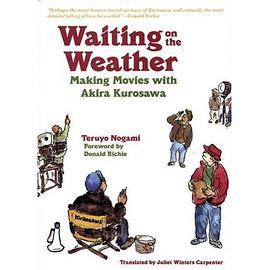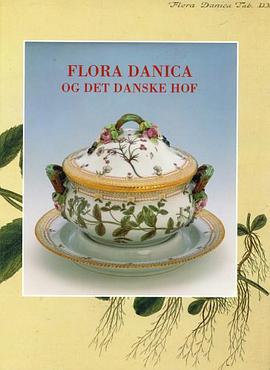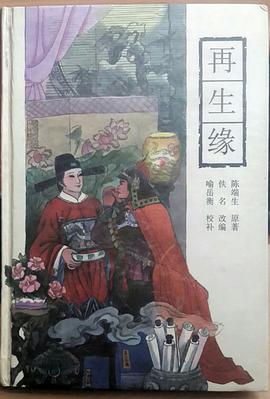

具体描述
<strong>Teruyo Nogami</strong> was a relative newcomer to film production when hired as a continuity/script assistant on <strong>Akira Kurosawa</strong>'s <em>Rashomon.</em> A witness to its filming-and its near destruction in a fire-over the next fifty years she worked on all the master's films-<em>Ikiru, Seven Samurai, Kagemusha,</em> and <em>Dreams.</em> No one was more closely involved in Kurosawa's productions, and in this memoir, charmingly illustrated with her own sketches, Nogami writes candidly about the director's energy, creativity, and his famous rages, telling the inside story on how so many classics of world cinema were made.</p>
"Teruyo Nogami was Akira Kurosawa's script supervisor throughout his career, more importantly she was his loyal assistant and supporter during both the good and bad moments of his life. She is an extraordinary woman and these memories are a path to understanding the temperament and genius of one of the few...geniuses of cinematic history. It's not uncommon for a film director to have made one or two great films, but Kurosawa was able to create many masterpieces in many styles, set in both modern and classic times. So the opportunity to know this artist through the lucid eyes of a long-time collaborator is a privilege and an opportunity. Nogami-san's salty personality is perfect to show his many sides, not always flattering, which is essential in grasping him. This book is a treasury of stories and a key to the great body of cinematic work of Akira Kurosawa." -- <strong>Francis Ford Coppola</strong></p>
"If you're interested in movies, then you're interested in the work of Akira Kurosawa. Teruyo Nogami was by Kurosawa's side for almost 50 years, as he quietly (and sometimes, not so quietly) revolutionized the verygrammar of cinema. This is a wonderfully intimate and beautifully written portrait of one of the greatest filmmakers who ever lived, which makes it essential reading." -- <strong>Martin Scorsese</strong></p>
作者简介
B. 1927 in Tokyo. She joined Daiei Films in 1949 and since 1950 served as Kurosawa's assistant on every film he made until his death. She now writes about films for magazines and works to spread and protect Kurosawa's legacy.
目录信息
读后感
黑泽明的自传《蛤蟆的油》中的时间截止到执导《罗生门》之前,因为据他自己说:“写自传的我不能穿过这个门再前进了。《罗生门》以后的我,要从《罗生门》之后我作品的人物中去认识。”看来,黑泽明自忖无法完成《罗生门》之后的自我评价,或许他心中期待有人可以将其补足,...
评分黑导在《蛤蟆的油》中谈到《罗生门》时曾经说过这样一段话,具体怎么说的我已记不清了。大意是讲《罗生门》提出了一个哲学上自我和现实的悖论问题。即任何所谓“真相”都是客观真实在个人主观世界中的映像,而这个映像由于个人主观上的好恶不可避免的要被扭曲而无法反映真实。...
评分舒琪提到他的朋友将野上照代写黑泽明的《等候天气》译为《等云到》,较之平实的原书名,《等云到》简直是化腐朽为神奇。有趣的是,内地出版社引进此书,名字变成了《看云去》(后改),和《等云到》又有了异曲同工之妙。 所谓“等云到”,说的是以前拍电影时,导演们多数情况下...
评分看过《蛤蟆的油》的朋友,大概都会对黑泽明大导演的谦逊留下深刻的印象。这么成功的导演,居然还会因看到“不堪的自己”,吓出一身冷汗。黑泽明的策略是自己俯视自己,让读者也跟着俯视他,仿佛彼此是可亲的邻友,在分享一段平凡的经历。 事实上,黑泽明在电影中绝对没有这种...
评分for 壹周悦读 No.3 如果《蛤蟆的油》好比黑泽明官方发布的纪录片,那么野上照代的这本《等云到》就好像正片DVD之后的花絮,充满细节和人情味。作者从旁观者的微小角度重新审视电影大师的宏大人生,读来别有一番趣味。 1927年生于东京的野上照代是为了照顾伊丹万作的遗孤伊丹...
用户评价
这本书的叙事节奏简直像夏日午后缓缓流动的冰茶,慢得让人几乎要打瞌睡,但又有一种奇特的魔力,让你忍不住想知道下一口会是什么滋味。作者对于环境细节的描摹,那种细腻到让你能闻到空气中尘土和青草混合的味道,简直是教科书级别的。我读到主人公在那个破旧的小镇上徘徊时,感觉自己也被困在了那种永恒的、微微发霉的氛围里。特别是描写小镇广场上那座生锈的喷泉,那种光影的变幻,那种水流几乎停滞的质感,写得太到位了。然而,我总觉得故事的冲突点来得太晚,而且爆发得有点像闷雷,听见了声响,却没看到真正的闪电。很多人物的动机都藏在云山雾罩之下,你需要非常耐心地去拼凑,对于喜欢快节奏叙事的读者来说,这可能是一场漫长的考验。它更像是一部艺术电影的长镜头,专注于捕捉那些转瞬即逝的情绪波动,而非推动一个明确的剧情主线。这种对“氛围”的极致追求,让这本书的阅读体验非常两极分化:要么沉醉其中,要么彻底出局。我个人更偏向于前者,但承认,这种“慢”有时候也成了阻碍我真正深入角色内心的墙。
评分从排版和装帧上看,这本书的设计无疑是极具匠心和品位的,但这种设计感似乎与内容的匹配度存在一些瑕疵。内页的留白处理得非常大气,字体选择也典雅复古,拿在手里很有分量感,绝对符合高端文学作品的定位。然而,这种对“形式”的过度强调,有时会分散我对内容的注意力。特别是某些章节故意采用的疏散排版,虽然意图可能是为了模拟某种心境的空旷,但实际阅读起来却显得累赘和拖沓。更令人不解的是,书中有几处插入的、据说是作者手稿的插图,线条极其潦草,内容也晦涩难懂,放在正文中反而成了视觉上的干扰项,并没有起到增加理解或美感的帮助。总体而言,这是一本外观非常精美的“阅读对象”,但它似乎更注重取悦那些欣赏书籍本身物理形态的收藏家,而非纯粹的叙事爱好者。这本书更像是为咖啡馆的精致角落而生的,而不是为深夜沉浸式的阅读体验而生的。
评分这本书最引人注目的是它对“失落感”的刻画,那种渗透在角色骨髓里的、对逝去美好时光的无望依恋。作者似乎非常擅长捕捉那些人类共通的脆弱点,比如面对变化时的无措,以及对“过去”的过度美化。当我读到主人公面对那张泛黄的照片,眼神中流露出的复杂情绪时,我几乎能感同身受那种时间不可逆转的残酷。但问题在于,这种失落感被渲染得过于浓重,以至于让整本书笼罩在一种挥之不去的阴郁之中。即便是那些应该带来希望的转折点,也被处理得非常暧昧和模棱两可,最终还是导向了某种形式的妥协或放弃。我理解作者想要表达“生活本就如此”的深刻主题,但阅读过程持续地消耗着读者的情绪能量,让人读完后感到身心俱疲,而不是被治愈或启发。我期待看到角色能找到一束真正的光,哪怕是很微弱的光,而不是一直生活在黄昏时分。
评分我对这本书的结构安排感到非常困惑,仿佛作者是随意地将一些片段拼接在一起,缺乏一个坚实的骨架来支撑整个叙事。比如,书中花了大量的篇幅去描绘一个次要角色对旧式机械的痴迷,这种细节的堆砌,虽然展现了作者的知识面,但对推动主要情节几乎毫无助益。每次我以为故事要进入正题时,笔锋一转,又跳到了另一段看似无关紧要的回忆或者场景切换。这种跳跃性,让阅读过程充满了“呃?”的时刻。而且,语言风格在不同章节之间波动极大,前一章还是那种典雅、略带忧郁的散文腔调,下一章突然冒出一些非常现代、甚至有些粗粝的俚语,这种不和谐感非常令人出戏。我试图从中寻找一种内在的联系,一种隐藏的逻辑线索,但最终放弃了。它更像是作者一连串想法的记录,而不是精心雕琢的作品。如果你期待一个线性、逻辑严密的故事,这本书恐怕会让你失望透顶。
评分这本书的对话部分处理得异常出色,这是我个人认为它最大的亮点。角色之间的交流,完全不是那种教科书式的、为了推进剧情而存在的对白。他们的言语充满了潜台词,充满了犹豫和未尽之意。有时候,他们说着A,但你清楚地知道,他们真正想表达的是B或C。特别是主角和那个神秘老者的几场对谈,那种围绕着核心问题却又不断绕圈子的交流方式,充满了张力。你必须仔细阅读每一个停顿、每一个省略号,才能捕捉到真正的情感流动。这种对白艺术的精湛运用,使得即使在情节相对平淡的地方,阅读的体验依然保持着高度的参与感。我甚至会把一些精彩的对白反复默读几遍,研究作者是如何在如此简洁的文字中塞入如此丰富的心理活动的。这绝不是一本可以“扫读”的书,它要求你像一个侦探一样,去挖掘语言背后的真实意图。
评分 评分 评分 评分 评分相关图书
本站所有内容均为互联网搜索引擎提供的公开搜索信息,本站不存储任何数据与内容,任何内容与数据均与本站无关,如有需要请联系相关搜索引擎包括但不限于百度,google,bing,sogou 等
© 2026 book.quotespace.org All Rights Reserved. 小美书屋 版权所有




















